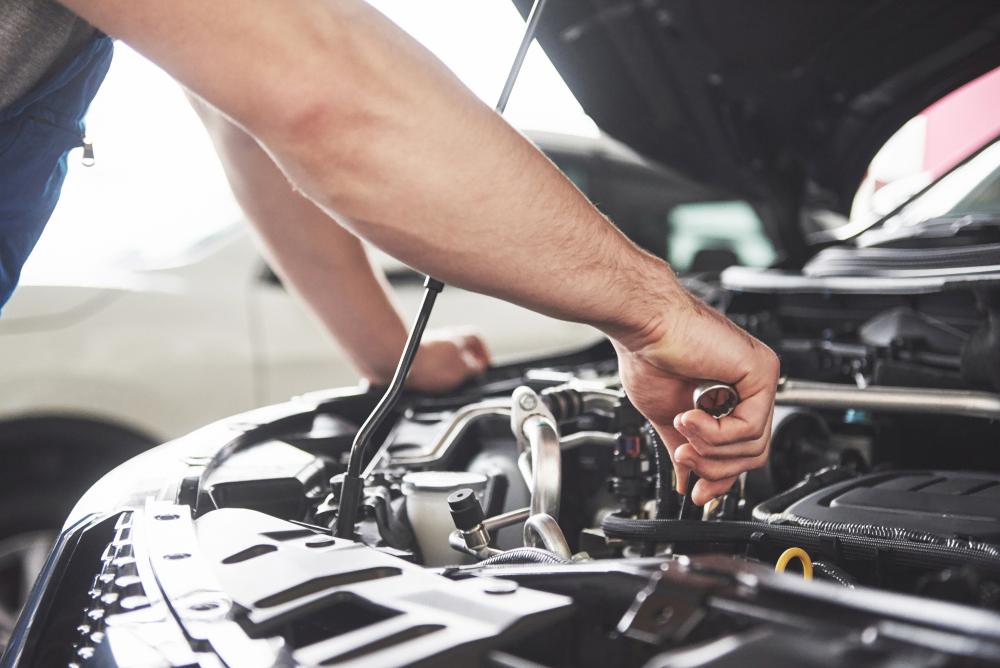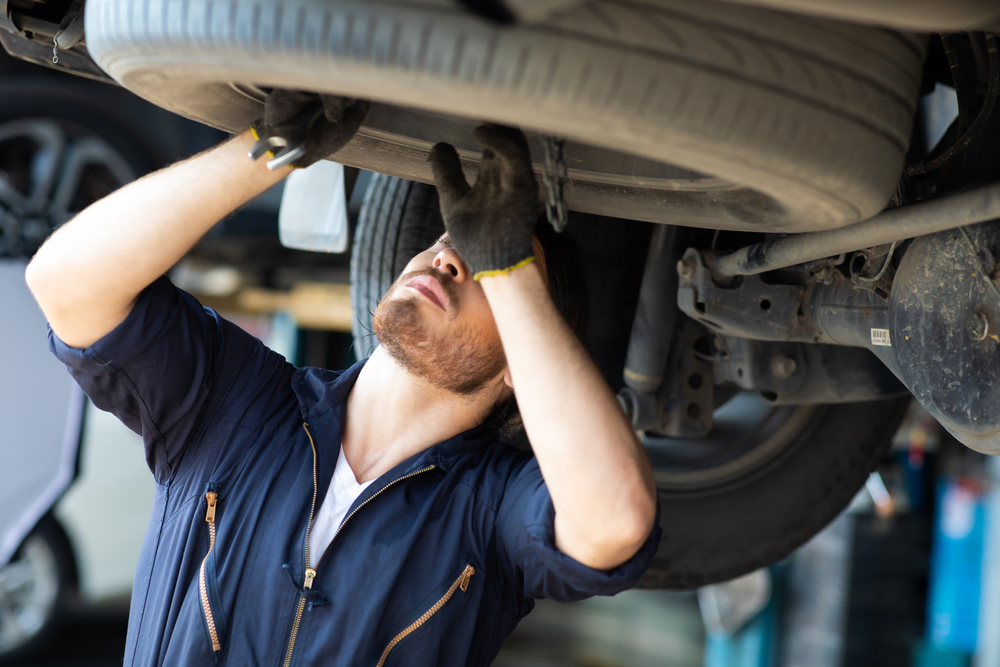
If you own a vehicle and drive regularly, besides finding cheap car insurance it’s essential to know when it needs maintenance. Learning some car maintenance tips and tricks can help ensure you understand what is most important to maintain and how to handle the work in the best possible manner.
Ideally, you’ll be able to do some basic maintenance tasks yourself to ensure your car is in good working order. If you can’t, then it’s important that you know when your vehicle needs maintenance so you can take it to a professional. Here are 8 essential vehicle maintenance questions.
1. Can You Check Your Own Vehicle Fluids?
Do you know how to check your vehicle’s supply of engine oil, coolant, power steering fluid, and other vital fluids? Maintaining correct fluid levels is critical for keeping your car functioning correctly. If you aren’t sure how to check your vehicle’s fluids, consider swinging by a local auto parts store for some tips. Alternatively, AAA offers car maintenance tips for drivers, including how to check the fluids in your vehicle.
2. Do You Know How to Check Your Belts and Hoses?
Checking your vehicle’s belts and hoses is often as simple as regularly popping open the hood and visually examining them for wear and tear. Look for cracks, splits, tears, or fraying, and if you notice any of this with a visual inspection, it’s time to visit a mechanic. If a belt is wearing out or slipping, you’ll likely also be able to hear it whining or shrieking as you drive. These are serious issues and should be handled quickly.
3. Are You Aware of Potential Brake Issues?
Modern automotive brakes are designed to alert the driver when issues arise. If you notice that your brakes give you too little resistance when you press the brake pedal, it’s time to visit a mechanic. When your brake pads are wearing thin, you’ll notice that they begin to make a squealing noise — this is a wear sensor that is designed to alert you that it’s time to visit a mechanic. In addition, most modern cars have one or more dashboard lights that will alert you when there is an issue with the brakes. If you notice any of these issues, you have an urgent problem and should take your vehicle to the shop as soon as possible.
4. Can You Maintain and Replace Your Battery?
Ideally, a vehicle battery should be replaced every four years. As you use your vehicle and battery, it’s essential to keep the terminals and connections clean and well maintained. Keeping your battery at a consistent temperature throughout the year will also help it last as long as possible. It’s also a good idea to carry jumper cables in your vehicle in case your battery dies while you’re out and about. If you do end up with a dead battery, having a good roadside assistance plan will help you.
5. Do You Know How to Change Your Oil and Filter?
Engine oil helps ensure that your engine components are lubricated and working correctly, and the oil filter removes particulates that could cause functional issues. You’ll need to change the oil in your vehicle if you notice that the engine is knocking, if you have a very low oil level, or if your car is making excess exhaust. If you’ve never changed your oil, Car and Driver provides easy car maintenance tips for the process.
6. Can You Maintain Your Windshield Wipers?
Keeping your windshield wipers in good working order is vitally important for operating your vehicle safely. Otherwise, you run the risk of losing visibility entirely during a storm. Your windshield wipers will need to be replaced twice a year. If you notice that they are leaving streaks on your windshield, they may need to be cleaned.
One easy way to keep your wipers in excellent condition is to wipe them down each time you put gas in your vehicle. Changing your wiper blades is a fairly simple process, but if you’d prefer not to do it yourself, most auto part stores will install them for you after purchase.

7. Do You Know How to Check Your Tires?
Even small issues with your tires can quickly become serious safety problems. It’s important that you know how to visually check your tires for issues before hitting the road. Quickly examine each tire before you start the car to be sure that there’s no noticeable damage, no tires are flat or punctured, and that there are no obstacles near them or behind them. We can’t always be prepared for a tire emergency, but looking into a tire hazard protection plan could help.
In addition, you should check the air pressure in your tires once per month. Most service stations have an automated tire gauge attached to their air supply, or you can purchase your own gauge inexpensively. In addition, you should check the PSI of your tires before you embark on a longer trip or if you’ll be carrying a heavier load than usual.
8. Are You Aware of the Importance of Ongoing Auto Maintenance?
Keeping up with ongoing vehicle maintenance is a vitally important part of automotive safety. Checking your tire pressure, oil levels, and windshield wipers regularly is an easy way to help prevent accidents caused by equipment failure. Spend a bit of time each time you stop for gas to maintain your vehicle so you can be as safe as possible while you’re on the road.